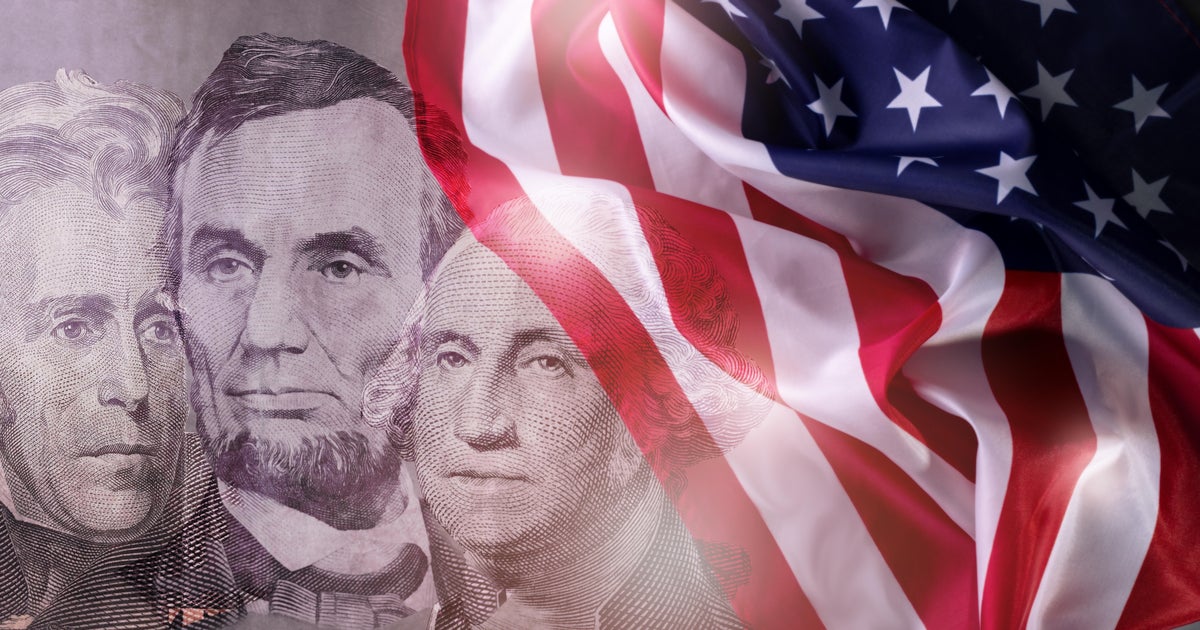Senate: Third Party Companies Making Billions Off Unauthorized Charges
Updated at 2:27 p.m. 2/28/2012 to reflect an updated statement from Verizon.
FORT WORTH (CBSDFW.COM) - United States Postal Service. Dallas County. The University of Texas System. Krispy Kreme Donuts. A Naval Station in San Diego. The Cities of Houston, Tyler and Los Angeles. And Children's Medical Center Dallas all have something in common. According to a Senate Committee investigation, they have all complained about unauthorized, bogus charges on their phone bill costing them and other American businesses "billions" of dollars!
And it's not just businesses, it's customers like Albert Gamboa's parents from Fort Worth also.
"My first thought was how long as it been on the bill and what is it for?" said Albert Gamboa, who recently started helping his parents handle their bills. When he looked at their phone bills from 2007 to 2011, Gamboa noticed for 58 months, his elderly parents had been paying $12.95 a month to an entity listed as "The Billing Resource." Neither he nor they had ever heard of the company. Gamboa called AT&T to have the charge removed. He says, AT&T told him he needed to contact The Billing Resource, and someone at The Billing Resource referred him to a company called Personal Voice. Gamboa says a woman at Personal Voice told him that his mother had signed up for the service over the internet.
"That's crazy," said Gamboa, "there is no way she could have signed up for it."
Gamboa says his elderly parents do not have a working computer in their house. And, they've never had access to the internet. Gamboa says his parents wouldn't even know how to get on the internet.
"Everyone who has a phone number is at risk for this scam," says Steve Riess, who is the Telecommunications Manager for Children's Medical Center. For 18 years, Reiss has been paying the 40 telephone bills for the 10,000 phone lines at the hospital, and he has had it with third-party billing.
"You get worn down after a while. You get to the point where you say this should not happen. If you stop it at the source, this should not happen."
For more than a decade, Reiss has dedicated a full-time employee to scouring the bills, finding the charges and trying to get reimbursed.
"You grit your teeth, go for the refund or give up and pay it. That's what they're all counting on, you'll give up and pay it," complains Reiss.
But paying it here sometimes amounts to more than $1,000 a month for the nonprofit hospital. Reiss estimates the hospital has lost more than $100,000 to unauthorized phone charges over the years.
"People put in a huge amount of work to raise that much money for the kids."
So how is it happening? A 1980 law allowed legitimate third party vendors, who provide telecommunication services like fax and voicemail, to bill you on your main phone service provider's bill, but a recent U.S. Senate Committee investigation reports that companies are using this law as a loophole.
The Senate Committee on Commerce, Science and Transportation presented the findings of its investigation in July 2011. The report states lawmakers became aware of the problem back in the 1990s, but "nobody paid much attention to it." The report goes on to say, "American families and businesses have been paying the price ever since… to the tune of 'billions and billions' of dollars." It estimates "300 million third party charges are on customers' bills every year."
The report says, the U.S. Postal Service was charged $500,000 in unauthorized charges that was only noticed when an auditing company reviewed the bills. A U.S. Naval Station was charged $11,000 in unauthorized charges and a small business that owns Popeye's and Krispy Kreme franchises reported that third party vendors placed more than $4,000 worth of charges on its telephone bills for services it did not authorize or use.
At one point, Dallas County reportedly had dozens of fraudulent charges per month on the phone bill.
Albert Gamboa says big companies like AT&T should be held responsible, and the government report shows major communications companies do stand to make some money.
The Senate Committee investigation states,"Telephone companies profit from cramming." It goes on to say, "Since 2006, AT&T, Qwest and Verizon have earned more than $650 million through third party billing." The report says, "Verizon explained that it 'receives a flat fee between $1 and $2 per charge for placing third-party charges' on its customers' bills."
In a statement to CBS 11 News, Bob Elek of Verizon says,
"Our 'first call resolution policy' — which has been in place since 1999 — gives our customers the benefit of the doubt, reversing third-party charges when consumers tell us the charges have not been authorized — no questions asked — and we proactively offer our free Bill Block service also introduced in 1999. Verizon charges billing aggregators flat fees for processing third-party charges which are not based on the amount the third party charges their customer. And to address a possible misperception, Verizon does not take a percentage of the third-party charges that appear on our customers' bills."
After CBS 11 aired this story, Verizon sent corrected a portion of its statement to say:
"Related to the Senate Commerce Committee report on cramming, Verizon, in fact, cooperated with the committee, provided it with appropriate data, and has no reason to dispute the Senate calculation of $650 million figure, which is cumulative and reflects the revenue of three companies over a five-year period."
Mark Molzen of CenturyLink, which is Qwest's parent company, sent CBS 11 News a statement saying, "When a customer disputes a third party billing, CenturyLink works on behalf of the customer to remove the disputed charges and block future billing. Third-Party billing does not represent a significant revenue stream for CenturyLink." Molzen also provided the following advice for customers.
- Read the fine print before placing calls in response to a sweepstakes contest.
- Be cautious about calling 800 numbers. Be especially aware if you're told to enter codes or leave your name and number.
- 900 calls are toll calls. If you are asked to call a "free" 900 number, be aware that there is no such thing.
- Consider a 900 number block for your phone. Blocks also are available for international, long distance and local toll calls. Call your local CenturyLink office for details. Also, CenturyLink offers to customers who request it a feature to block third party charges.
- Carefully examine your bill for monthly recurring charges. Watch for fees described as "member fees," "activation fees," etc.
AT&T did not want to talk on camera in response to our story, but late last week, the company promised a full refund to Gamboa's parents. AT&T Senior PR Manager Alejandra Arangao also provided CBS 11 News the following statement and advice for customers: "Here is the information we want our customers to know about how to protect themselves from third party billing. Also, we encourage your viewers to visit our website at att.com, under smart controls -- http://www.att.net/smartcontrols-Cramming to get even more information or answer any other questions they may have."
AT&T recommends the following tips to help prevent cramming or other unwanted charges on your bills.
- 'Cramming' occurs when unauthorized charges appear on your telephone bill. Customers can request that third party charges be blocked from your bill. If you're not interested in purchasing third-party services, you may contact AT&T at any time to request that third party charges be blocked from your bill at no charge.
- Avoid placing calls to 900 numbers. The FTC says consumers should consider a 900 number block; it stops calls from going through to 900 number services.
- Avoid accepting collect calls, signing up for sweepstakes or contests online or generally entering your contact information in places that are not considered secure like unsecured websites and solicitations made over the phone. These sometimes have fine print that note by providing your information, you're signing up for additional services.
- Discuss all charges with other members of your household. Sometimes confusion can arise over charges that show up on a customer's bill because household members forget to discuss services that were ordered.
- Always read the fine print and know what you're signing up for. In some cases, customers simply may not have understood a transaction when it took place. Pay close attention to service offers, contests or other scenarios where you may be giving away your information and signing up for services you don't want.
Below is how AT&T can help if you've been crammed.
- AT&T takes immediate action to help customers who contact us and report that they may have been billed for unauthorized third-party charges. To dispute a charge, we encourage customers to first deal directly with the third party that originated the charge, whose name and toll-free telephone number should be printed on the same bill page as the charge in question. Often, the problem can be resolved with a single telephone call.
- Our customers can request at any time to have third-party charges blocked from their bill at no charge. AT&T will proactively offer this option to customers who contact us with a cramming complaint.
- All customers who call us to report cramming complaints will be issued credits and will not be required to pay AT&T for the disputed charges. (Credits generally appear on customers' bills within one or two months.)
When we asked AT&T about the profit it makes from third-party billers, the spokesperson provided us the following information. "We provide a service to third parties, and we charge for the service. Also, we want to make sure your viewers understand:
- AT&T's third-party billing contracts require service providers (or their clearinghouses) to submit only properly authorized charges and to comply with all state and federal laws regarding slamming, cramming and truth-in-billing.
- AT&T collects and reviews cramming complaint data on all third-party service providers monthly. AT&T can and will discipline any service providers that bill inappropriate charges -- including imposing fees for each cramming complaint, or even terminating the billing relationship.
- The vast majority of service providers adhere to our strict guidelines for sales, verification and billing. In fact, substantially less than 1% of bills that have third-party charges actually result in cramming complaints."
Also Check Out:







